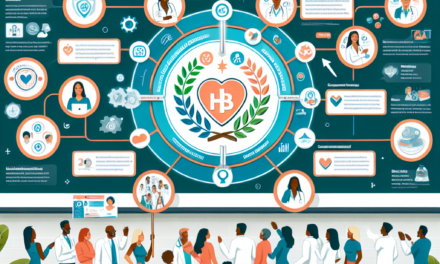Cyberattack on Ascension Compromises Medical Data of 5.6 Million Customers
The healthcare sector has increasingly become a target for cybercriminals, with sensitive patient data being a prime objective. One of the most significant breaches occurred when Ascension, one of the largest healthcare systems in the United States, suffered a cyberattack that compromised the medical data of approximately 5.6 million customers. This article delves into the details of the attack, its implications, and the broader context of cybersecurity in healthcare.
Understanding the Cyberattack on Ascension
In late 2020, Ascension reported a data breach that exposed the personal and medical information of millions of patients. The attack was part of a larger trend of increasing cyber threats targeting healthcare organizations, which are often seen as soft targets due to their reliance on outdated technology and the critical nature of their services.
The breach was attributed to a sophisticated ransomware attack, where hackers infiltrated Ascension’s systems, encrypted sensitive data, and demanded a ransom for its release. The attackers gained access to a wealth of information, including names, addresses, birth dates, social security numbers, and medical records.
Ascension’s response to the breach involved notifying affected individuals, offering credit monitoring services, and working with law enforcement to investigate the incident. However, the damage was done, and the implications of the breach extended far beyond the immediate loss of data.
The Impact on Patients and Healthcare Providers
The breach of Ascension’s data had significant repercussions for both patients and healthcare providers. For patients, the exposure of personal and medical information raised concerns about identity theft and privacy violations. Many individuals were left feeling vulnerable, knowing that their sensitive information was now in the hands of cybercriminals.
Healthcare providers also faced challenges in the wake of the breach. The loss of trust from patients can have long-lasting effects on a healthcare organization’s reputation. Patients may be less likely to share sensitive information in the future, which can hinder the quality of care they receive. Additionally, healthcare providers may face legal repercussions and financial penalties as a result of failing to protect patient data adequately.
- Identity Theft Risks: The compromised data can be used for identity theft, leading to financial losses for patients.
- Loss of Trust: Patients may lose faith in the healthcare system, affecting their willingness to seek care.
- Legal Consequences: Ascension may face lawsuits and regulatory fines for failing to protect patient data.
- Operational Disruptions: The attack can disrupt healthcare services, affecting patient care.
- Increased Security Costs: Ascension will likely need to invest heavily in cybersecurity measures post-breach.
The Broader Context of Cybersecurity in Healthcare
The Ascension breach is not an isolated incident; it reflects a broader trend of increasing cyberattacks on healthcare organizations. According to a report by the cybersecurity firm Cybereason, healthcare organizations experienced a 45% increase in cyberattacks in 2020 compared to the previous year. This surge can be attributed to several factors:
- Increased Digitalization: The rapid adoption of electronic health records (EHRs) and telehealth services has expanded the attack surface for cybercriminals.
- Outdated Technology: Many healthcare organizations rely on legacy systems that are vulnerable to attacks.
- High Value of Medical Data: Medical records are often more valuable on the black market than credit card information, making them a prime target.
- Ransomware as a Service: The rise of ransomware-as-a-service has made it easier for cybercriminals to launch attacks.
- Regulatory Challenges: Compliance with regulations like HIPAA adds complexity to data protection efforts.
Healthcare organizations must prioritize cybersecurity to protect sensitive patient data. This includes investing in advanced security technologies, conducting regular security assessments, and training staff on best practices for data protection.
Lessons Learned from the Ascension Breach
The Ascension cyberattack serves as a cautionary tale for healthcare organizations. Several key lessons can be drawn from this incident:
- Proactive Cybersecurity Measures: Organizations must adopt a proactive approach to cybersecurity, including regular risk assessments and vulnerability testing.
- Employee Training: Staff should be trained to recognize phishing attempts and other common attack vectors.
- Incident Response Plans: Having a robust incident response plan in place can help organizations respond quickly and effectively to breaches.
- Data Encryption: Encrypting sensitive data can help protect it even if it is accessed by unauthorized individuals.
- Collaboration with Law Enforcement: Organizations should establish relationships with law enforcement agencies to facilitate quick responses to cyber incidents.
By learning from the Ascension breach, healthcare organizations can better prepare themselves to defend against future cyber threats.
The Future of Cybersecurity in Healthcare
As cyber threats continue to evolve, the future of cybersecurity in healthcare will require ongoing adaptation and innovation. Several trends are likely to shape the landscape:
- Increased Investment in Cybersecurity: Healthcare organizations will need to allocate more resources to cybersecurity initiatives, including hiring dedicated security personnel and investing in advanced technologies.
- Adoption of AI and Machine Learning: Artificial intelligence and machine learning can help organizations detect and respond to threats more effectively.
- Focus on Data Privacy: With growing concerns about data privacy, organizations will need to prioritize protecting patient information.
- Collaboration Across the Industry: Healthcare organizations should collaborate to share threat intelligence and best practices for cybersecurity.
- Regulatory Changes: As cyber threats evolve, regulatory frameworks may also change to address new challenges in data protection.
The future of cybersecurity in healthcare will require a comprehensive approach that combines technology, policy, and education to protect sensitive patient data effectively.
Conclusion
The cyberattack on Ascension that compromised the medical data of 5.6 million customers highlights the urgent need for robust cybersecurity measures in the healthcare sector. As cyber threats continue to grow in sophistication and frequency, healthcare organizations must prioritize the protection of sensitive patient data to maintain trust and ensure the quality of care.
By learning from the lessons of the Ascension breach and adapting to the evolving cybersecurity landscape, healthcare organizations can better prepare themselves to defend against future attacks. The stakes are high, and the consequences of inaction can be devastating for both patients and providers alike.
In summary, the Ascension cyberattack serves as a wake-up call for the healthcare industry. It underscores the importance of proactive cybersecurity measures, employee training, and collaboration across the industry to safeguard sensitive patient information. As we move forward, the commitment to protecting patient data must remain a top priority for all healthcare organizations.





